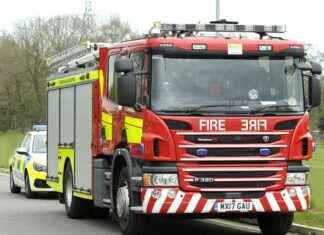Whooping cough cases have been on the rise in England, with more than 10,000 cases confirmed by lab tests so far this year. The death of a tenth baby has been confirmed as the outbreak continues to spread across the country. The latest data shows that cases peaked in May with 3,052 confirmed cases, and remained high in June with 2,427 cases.
The majority of cases (55%) were in children and adults aged 15 and over, who usually experience mild symptoms. However, there were 328 cases in babies under three months of age, who are at a higher risk of serious complications and death from whooping cough.
The UK Health Security Agency (UKHSA) received 939 whooping cough alerts in the week ending June 30, and more than 1,000 cases in each of the eight weeks prior to that. These alerts are sent by GPs when they suspect a case of whooping cough, providing an early warning of possible outbreaks. Around 23% of these cases are later confirmed to be whooping cough.
According to the UKHSA, whooping cough is a cyclical disease that peaks every three to five years, with the last peak years being 2016 and 2012. The map below shows the suspected cases of whooping cough in your area, allowing you to track the spread of the disease in your community.
It is important to stay informed about the symptoms of whooping cough, which include severe coughing fits followed by a “whooping” sound, vomiting after coughing fits, and exhaustion. If you suspect that you or a family member may have whooping cough, it is important to seek medical attention and follow the guidance of healthcare professionals.
Preventative measures such as vaccination can help reduce the spread of whooping cough and protect vulnerable populations, especially young infants. It is essential to stay vigilant and take necessary precautions to prevent further cases of whooping cough in your community. Stay informed, stay safe, and together we can combat this outbreak.




















